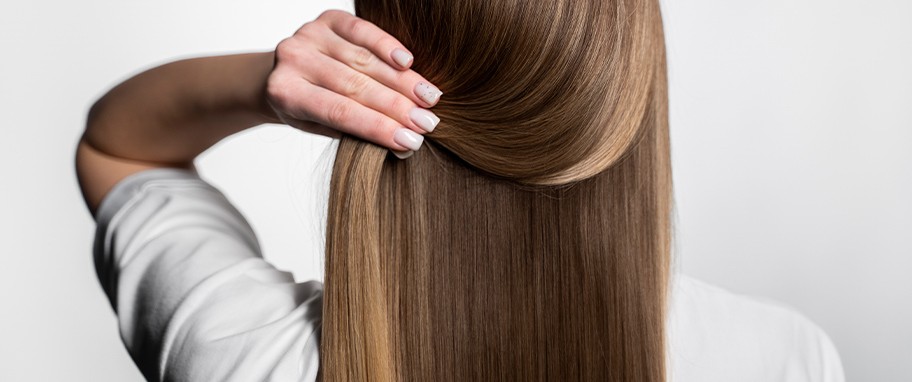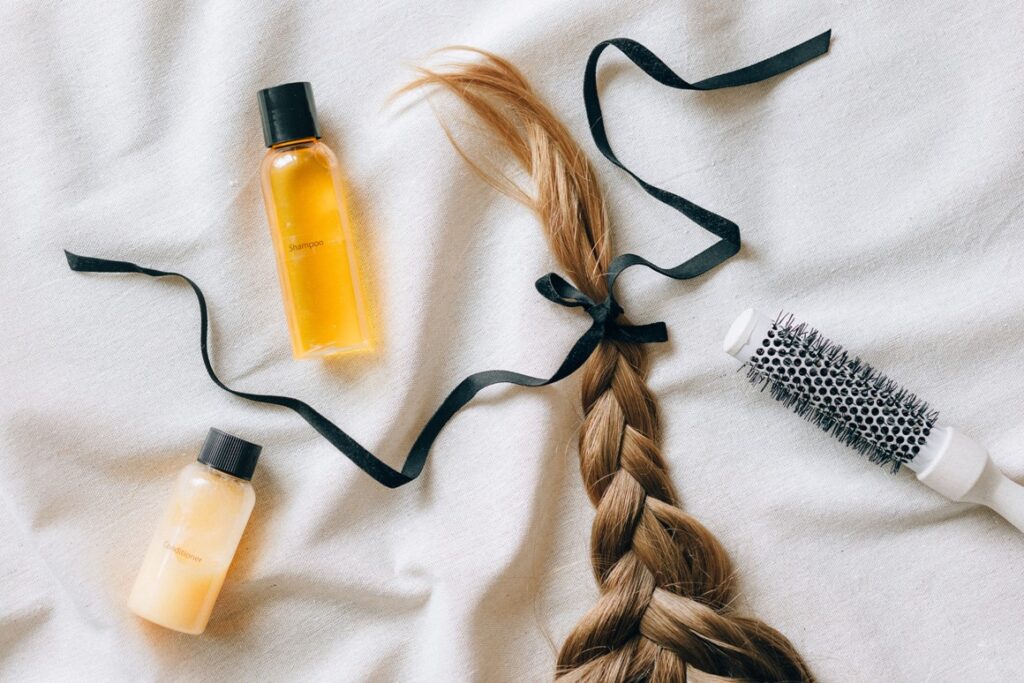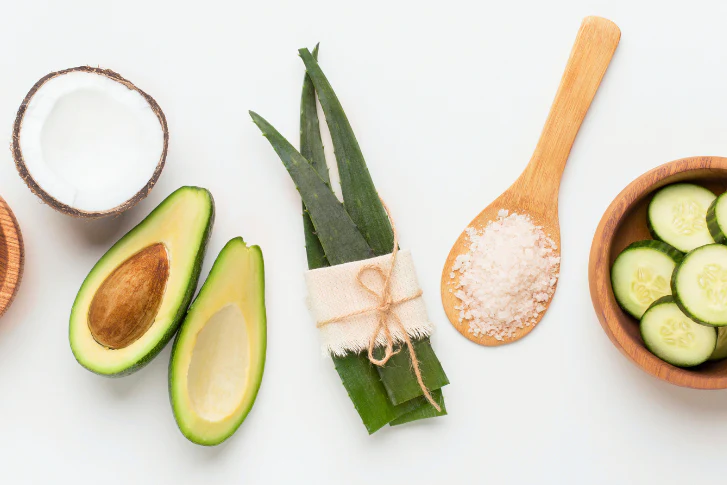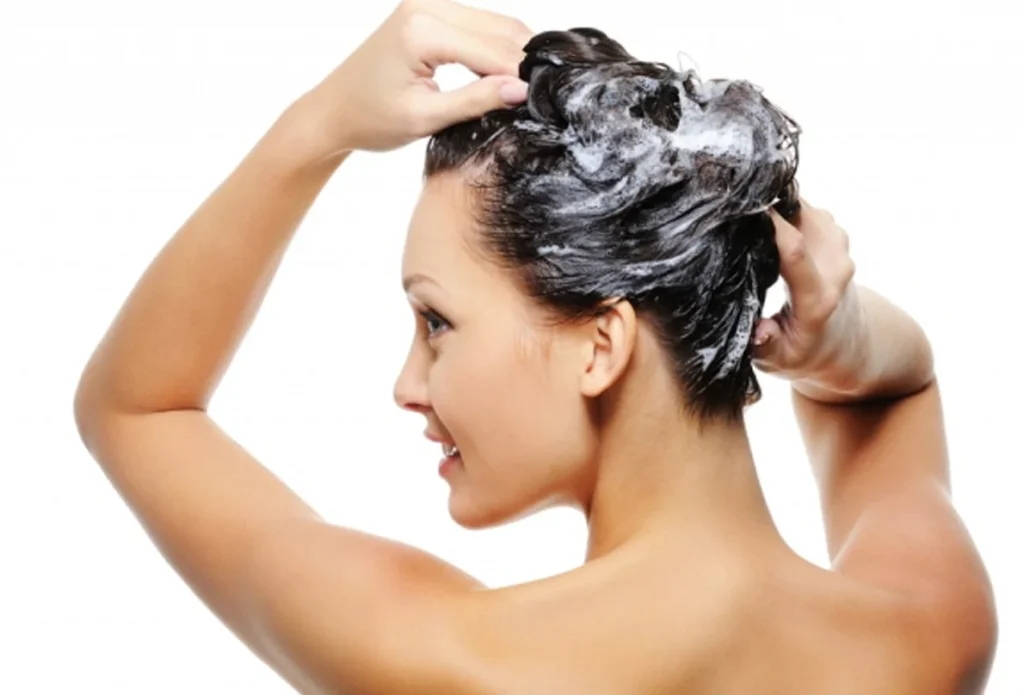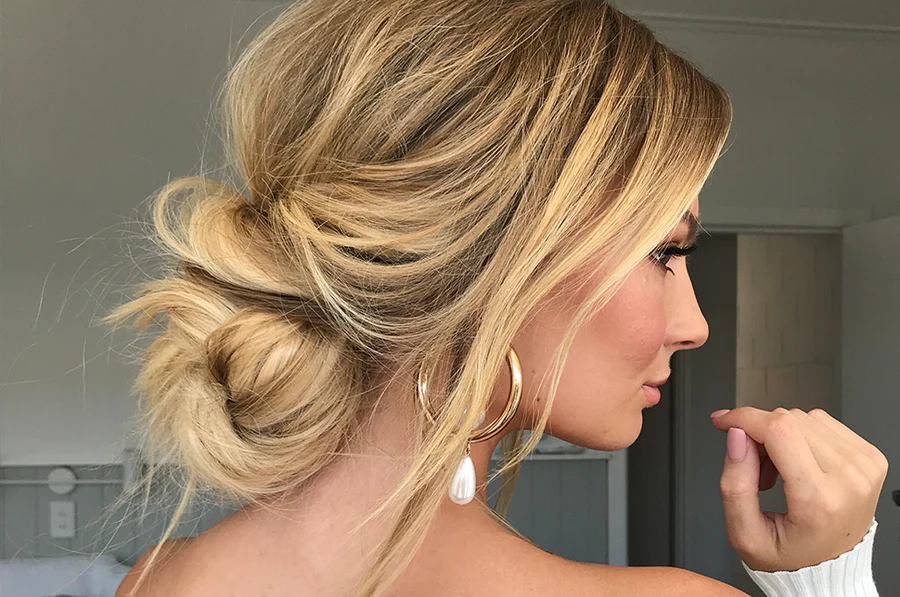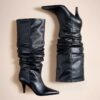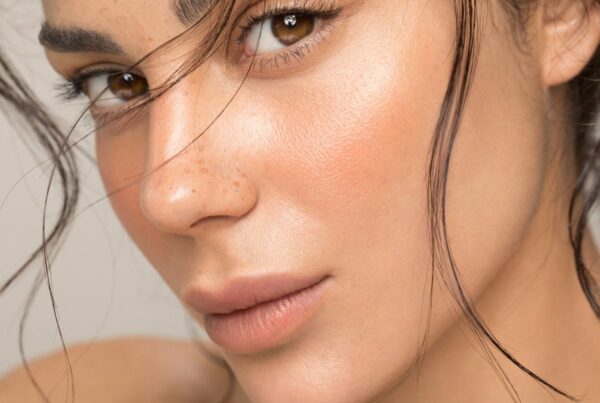In today’s world, achieving healthy and shiny hair can be a challenge due to various factors such as product choices, styling techniques, and scalp health. This article provides practical insights into effective hair care practices, focusing on the benefits of natural ingredients, the importance of scalp health, and strategic styling methods. By understanding these key aspects, readers can enhance their hair’s appearance and overall vitality.
Whether you’re struggling with dry hair, dandruff, or simply looking for ways to elevate your hair’s shine, this guide offers actionable tips and strategies to address these common concerns. Dive in to discover how you can transform your hair care routine for better results.
Table of Contents
Nourish Your Hair with the Right Oils
When it comes to achieving healthy, lustrous hair, using the right oils can make a significant difference. Hair oils not only provide moisture and nourishment, but they also protect your strands from environmental damage, promote growth, and enhance shine. Yet, with a plethora of choices out there, how do you know which oils are right for your hair type? This article dives into various natural oils, their unique benefits, and tips on how to effectively incorporate them into your hair care routine.
Understanding Different Hair Types
Before selecting an oil, it’s crucial to understand your hair type—whether it’s straight, wavy, curly, or coily—as each type has different needs. Here’s a brief overview:
- Straight Hair: Tends to be oiler, requiring lightweight oils like jojoba oil that won’t weigh it down.
- Wavy Hair: Needs a balance of hydration and definition, making oils like argan oil particularly beneficial.
- Curly Hair: Craves moisture and nutrients; rich oils such as coconut oil and avocado oil are ideal for providing intense hydration.
- Coily Hair: Often dry, requiring heavier oils like castor oil to seal in moisture and enhance shine.
Top Oils for Hair Nourishment
Here’s a closer look at some of the most effective oils to consider, each with unique properties that cater to different hair care needs:
- Coconut Oil: Renowned for its deep moisture retention, coconut oil penetrates the hair shaft, reduces protein loss, and strengthens hair. It’s particularly great for curly and coily textures.
- Argan Oil: Packed with essential fatty acids and vitamin E, argan oil is fantastic for adding shine and taming frizz. Its lightweight texture makes it suitable for every hair type.
- Jojoba Oil: Closest in composition to the natural oils produced by the scalp, jojoba oil helps regulate oil production while providing hydration. It’s excellent for all hair types, especially fine hair.
- Olive Oil: A traditional favorite, olive oil nourishes and strengthens hair due to its rich antioxidant content. It also enhances softness and provides a protective barrier against damage.
- Castor Oil: Known for promoting hair growth, castor oil is rich in ricinoleic acid, which boosts circulation to the scalp. Use it as a treatment for thickening and lengthening hair.
- Grapeseed Oil: This oil is light and easily absorbed, making it a great option for those with fine hair. It is rich in linoleic acid and helps lock in moisture without causing heaviness.
Tips for Using Hair Oils Effectively
To maximize the benefits of hair oils, consider the following practical tips:
- Pre-Shampoo Treatment: Apply oil to dry hair before washing to create a protective barrier that helps retain moisture during shampooing.
- Scalp Massage: Incorporate oils like castor or jojoba into your scalp massages to promote circulation and stimulate hair growth.
- Leave-In Treatment: After washing, apply a small amount of argan or grapeseed oil to damp hair to lock in moisture and enhance shine.
- Hot Oil Treatment: Warm your chosen oil and apply it to your hair for intense hydration. Cover with a shower cap and let it sit for at least 30 minutes before rinsing.
Choosing Quality Oils
When selecting oils for your hair, prioritize quality. Look for cold-pressed, organic options that are free from additives and fragrances. This ensures you’re getting the most nutrient-rich oils without any harmful chemicals. Healthline offers detailed insights on the benefits of cold-pressed oils that can help you make informed decisions.
Incorporating the right oils into your hair care routine can significantly transform the health and appearance of your locks. As you explore different options, remember to experiment to find what works best for your specific hair type, and enjoy the nourishing journey to healthier, shinier hair!
Transform Your Hair Care Routine with Natural Ingredients
In an age where the quest for glossy, healthy hair is more pronounced than ever, many are looking beyond conventional products laden with chemicals. The shift towards natural ingredients for hair care is not just a trend; it’s a promising approach that draws upon the wisdom of nature to promote hair vitality and scalp health. Below, we explore various natural ingredients that can revolutionize your hair care routine.
Why Choose Natural Ingredients?
Natural hair care products offer a myriad of benefits that synthetic alternatives often cannot match. Here are some fundamental reasons to embrace them:
- Gentleness on Hair: Natural ingredients are typically less harsh, reducing damage that can come from chemicals found in conventional hair products.
- Environmental Impact: Sourcing natural ingredients promotes sustainability and is often better for the environment.
- Rich in Nutrients: Many natural ingredients are packed with vitamins, minerals, and antioxidants that nourish the hair and scalp, promoting overall health.
Effective Natural Ingredients for Hair Care
Here are some powerful natural ingredients that can make a significant difference in your hair care regimen:
1. Coconut Oil
Coconut oil is revered for its deep moisturizing properties. It penetrates hair shafts effectively, reducing protein loss and preventing dryness. Use it as a pre-wash treatment or as a leave-in conditioner to add shine and manageability to your locks.
2. Aloe Vera
The gel derived from the Aloe vera plant is a powerhouse of hydration. It’s known for its soothing properties, making it ideal for those with a sensitive scalp. Incorporating aloe vera into your hair care routine can alleviate dandruff and promote hair growth.
3. Honey
Honey is not just a sweetener; it’s a natural humectant that attracts moisture. It’s packed with vitamins and minerals that enhance hair elasticity and gloss. Mixing honey with other natural ingredients can create a soothing mask that revitalizes dull hair.
4. Jojoba Oil
Jojoba oil closely resembles the natural oils produced by our scalp, making it a fantastic choice for balancing oil production. It’s particularly beneficial for those with oily hair or scalp issues, as it can help regulate sebum without stripping away moisture.
5. Essential Oils
Essential oils like rosemary and lavender not only offer delightful fragrances but can also stimulate hair growth and soothe irritated scalps. Anointing a few drops of diluted essential oils into your hair care products can amplify their effectiveness.
How to Incorporate Natural Ingredients into Your Routine
Transforming your hair care routine with these natural ingredients can be simple and rewarding. Here are some easy ways to get started:
- DIY Treatments: Create your custom masks and treatments using the ingredients listed above. For example, mix coconut oil, honey, and aloe vera for a nourishing hair mask.
- Read Labels: When purchasing products, look for those that list natural ingredients first. This can help you avoid products with harmful additives.
- Gradual Introduction: Try to introduce one natural ingredient at a time. This helps you monitor how your hair reacts and identify what works best.
Common Myths About Natural Hair Care
Despite their popularity, misconceptions about natural hair care persist. Here’s a closer look at some common myths:
- Natural Equals Ineffective: Many believe natural products don’t work as well as chemical-laden options. In reality, natural ingredients can be incredibly effective when used correctly.
- All Natural is Safe: While natural ingredients can be gentler, allergens exist. Always perform a patch test before fully integrating a new ingredient into your routine.
Incorporating natural ingredients into your hair care routine not only nurtures your hair but also contributes positively to the environment. For more detailed guidance on transforming your hair care products with natural components, check out resources like Organic Beauty Talk, which offers extensive information on natural beauty and personal care options. As you consider the elements that make up a healthy hair care regimen, remember that harmonizing your routine with nature can lead to long-lasting, beautiful results.
Mastering the Art of Scalp Health
Scalp health is often overlooked in the quest for beautiful hair. However, the condition of your scalp plays a crucial role in the growth and quality of your hair. By focusing on proper care and maintenance of your scalp, you can maximize your hair’s potential and enhance its overall appearance. This guide will explore essential strategies for mastering scalp health, providing you with practical tips and insights tailored to achieve optimal results.
Understanding the Scalp
Your scalp is more than just the skin on your head; it is a complex ecosystem that requires proper care. A healthy scalp is free from excess oil, dryness, and itchiness. Key factors affecting scalp health include:
- Sebum Production: The natural oils produced by your scalp keep hair moisturized, but too much or too little can cause problems.
- Microbiome Balance: A range of bacteria and fungi naturally inhabit the scalp. Keeping this balance is vital for preventing issues like dandruff and dermatitis.
- Environmental Factors: Pollution, sun exposure, and harsh weather can impact scalp condition.
Key Practices for Optimal Scalp Health
To maintain a healthy scalp, consider adopting the following practices:
- Regular Cleansing: Use a gentle shampoo to remove excess oils and product build-up. Aim for a frequency that suits your hair type; for many, this is 2-3 times a week.
- Exfoliation: Just as your face benefits from exfoliation, so does your scalp. Consider using a scalp scrub or a brush designed for this purpose to remove dead skin cells and promote circulation.
- Moisturization: Keeping your scalp hydrated is essential. Natural oils, such as coconut or jojoba oil, can be massaged into the scalp to provide nourishment and moisture.
Identifying and Addressing Common Scalp Issues
Problems like dandruff, dryness, and oily scalp can be addressed effectively with targeted care:
- Dandruff: Use anti-dandruff shampoos containing ingredients like zinc pyrithione or ketoconazole. Regular use can help re-balance the scalp’s microbiome.
- Dry Scalp: Incorporate hydrating treatments into your routine. Look for products with ingredients like aloe vera or tea tree oil that soothe and hydrate.
- Oily Scalp: Choose lighter, clarifying shampoos and avoid overly rich conditioners. These can help to control excess oil without stripping away necessary moisture.
The Importance of Diet and Lifestyle
What you consume plays a significant role in the health of your scalp. Foods rich in omega-3 fatty acids, like salmon, walnuts, and flaxseeds, can promote scalp health by reducing inflammation. Additionally, maintaining hydration by drinking plenty of water is crucial. Aim to include the following in your diet:
- Fruits and Vegetables: Rich in vitamins and antioxidants, they combat oxidative stress and inflammation.
- Protein: Essential for hair growth, include lean meats, beans, and lentils in your meals.
- Zinc and Iron: These minerals, found in foods like spinach and pumpkin seeds, support hair health and cell reproduction.
Consulting with Professionals
If scalp problems persist despite your best efforts, consider consulting with a dermatologist or trichologist. Professionals can offer insights into underlying issues, recommend appropriate treatments, and help you tailor a care regimen that addresses your specific needs.
Utilizing Technology for Scalp Analysis
Advancements in technology have made it easier than ever to monitor your scalp’s health. Devices like handheld scanners can analyze scalp conditions, identifying problems and offering personalized solutions. These tools can provide insights into:
- Follicle Health: Assessing the density and health of hair follicles can inform your treatment choices.
- Skin Condition: Understanding whether your scalp is oily, dry, or balanced can help guide product selections.
Embracing these strategies will empower you with the knowledge and tools to master the art of scalp health. By prioritizing your scalp care, you not only improve your hair’s health but also create a strong foundation for achieving your hair goals.
For more information on maintaining healthy scalp and hair, consider visiting Healthline, where you can find expert advice and additional insights.
Elevate Your Shine with Effective Styling Techniques
If you’re looking to enhance your hair’s natural luster, the way you style your hair can play a crucial role in achieving that glossy finish. Effective styling techniques are essential not just for aesthetics, but also for maintaining the health of your hair. Below, we explore various methods, tools, and products that can help elevate your shine while protecting your strands.
The Power of Proper Heat Styling
Heat styling is often seen as a double-edged sword; while it creates stunning looks, excessive heat can damage hair. To maximize shine while minimizing damage, consider these strategies:
- Use a heat protectant: Always apply a heat protectant spray or serum before using any styling tools. This acts as a barrier, reducing heat damage and boosting shine.
- Choose the right temperature: Lower temperatures work for fine or color-treated hair, while slightly higher settings can be used for thicker strands. Adjust accordingly to protect your locks.
- Invest in quality tools: High-quality curling wands, flat irons, and blow dryers often have better temperature control and are designed to minimize damage.
Mastering the Art of Blow-Drying
BLOW-drying might seem straightforward, but there are techniques that can elevate both volume and shine. Here’s how:
- Prep with the right products: A volumizing mousse or shine-enhancing serum can provide a good foundation for your style. Look for products that are lightweight to avoid weighing down your hair.
- Dry with a round brush: Using a round brush while blow-drying can help lift the roots and smooth the hair cuticle, leading to a shinier finish.
- Cool down at the end: A blast of cold air at the end of your blow-dry session can seal the cuticles, locking in shine and taming frizz.
Techniques for Natural Waves
If you prefer a more relaxed, beachy style, consider these methods for creating natural waves that catch light beautifully:
- Use braids or buns overnight: One of the easiest ways to achieve waves is to braid or twist damp hair before bed. In the morning, simply unravel for soft, natural waves.
- Incorporate sea salt sprays: Initialize your styling with a sea salt spray. This adds texture and enhances waves, resulting in a chic, effortless look.
- Try a curling cream: If you have fine hair, a curling cream will add definition without weighing it down. For thicker hair, consider a heavy mousse.
Finishing Touches for Glossy Locks
Even after styling, it’s important to use finishing products to ensure maximum shine. Here are some options:
- Hair oils: Lightweight oils such as argan or jojoba are perfect for adding shine without greasiness. A few drops applied to the ends of your hair can create a luminous finish.
- Shine sprays: Designed specifically to impart gloss, these sprays can be applied after styling for that mirror-like shine.
- Hair serums: A serum can help in controlling frizz and enhancing shine simultaneously. Look for ones that are non-greasy and absorb quickly.
Incorporating these styling techniques, tools, and products can significantly enhance the natural beauty of your hair. For more insights on achieving healthy, shiny hair, consider reading about proven tips for healthy and lustrous hair. With the right approach, your hair can reflect light in the most stunning way, making heads turn everywhere you go.
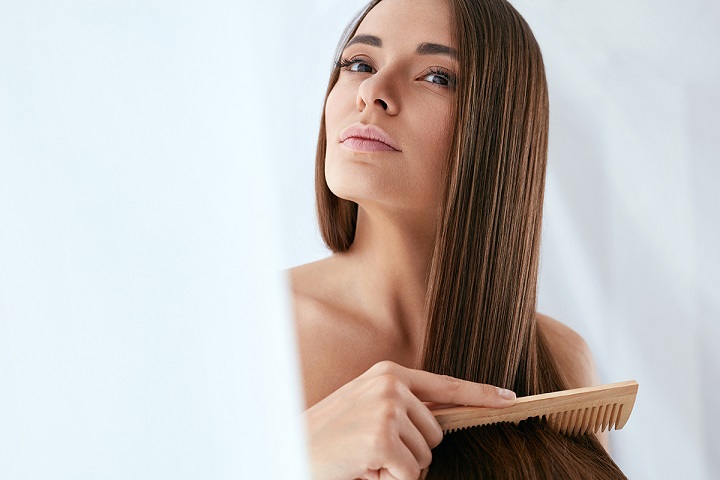
To achieve healthier, shinier hair, incorporate natural oils and ingredients into your hair care routine. Oils like argan, jojoba, and coconut are excellent for moisture and nourishment. Utilize effective methods such as pre-shampoo treatments, scalp massages, and leave-in applications to maximize their benefits. Opt for high-quality, organic oils free from additives, and consider creating DIY treatments using ingredients like honey and aloe vera.
Prioritize scalp health by cleansing regularly, exfoliating, and moisturizing with natural oils. Address common issues like dandruff and dryness with targeted treatments, and maintain a nutrient-rich diet to support scalp vitality. Incorporate gentle heat styling techniques and finishing products like shine sprays and lightweight oils to enhance your hair’s natural luster, ensuring it looks radiant and healthy.


